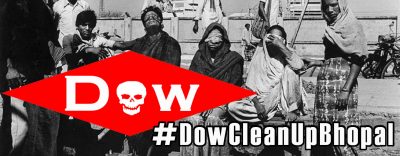
A New York lawsuit based on claims initiated by Bhopal residents in 1999 appears to have reached the end of the road this month when a New York Court of Appeals rejected a petition for rehearing without a single comment. The experience has left behind the sense of a judicial process highly affected by the politics of multinational commerce. The lawsuit “has not been treated like other pollution cases”, asserted legal NGO Earthrights, which worked with survivor plaintiffs on the case, “and the courts have ignored legal doctrines that should establish Union Carbide’s responsibility.”
Since 1999, three class action lawsuits have been filed in the Southern District Court of New York on behalf of people living in communities near to the abandoned Union Carbide pesticide plant in Bhopal. The communities have been adversely affected by poisonous chemicals emanating from toxic waste dumped by Union Carbide while its factory was in operation. This contamination crisis is recognised by the American courts as a distinct matter form the 1984 gas disaster despite being caused by the same factory.
In the most recent case, Sahu II, on 24th May, 2016, the New York federal appeals court found that Union Carbide Corporation (UCC) could not be sued for the ongoing pollution of drinking water caused by toxic waste dumped in and around the abandoned Union Carbide factory in Bhopal. Counsel for the plaintiffs filed for a re-hearing, making an extremely powerful case: CLICK
But, on the 15th August, an order was issued dismissing the petition without any comment.
History of Sahu II: CLICK
History of class actions: CLICK
The Dow Chemical Company’s Bhopal Related Legal Liabilities: CLICK


